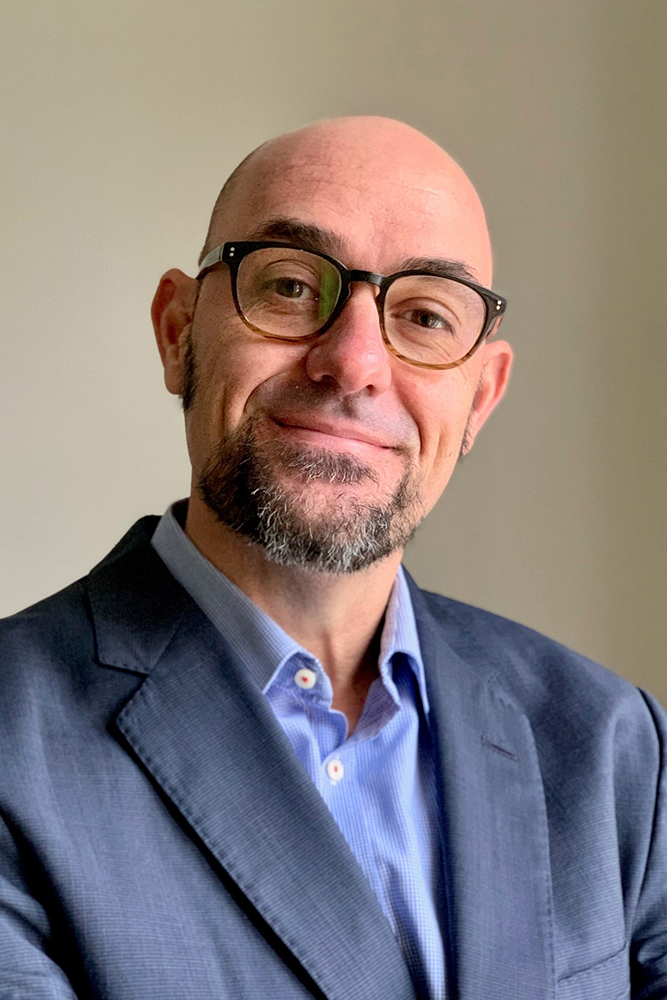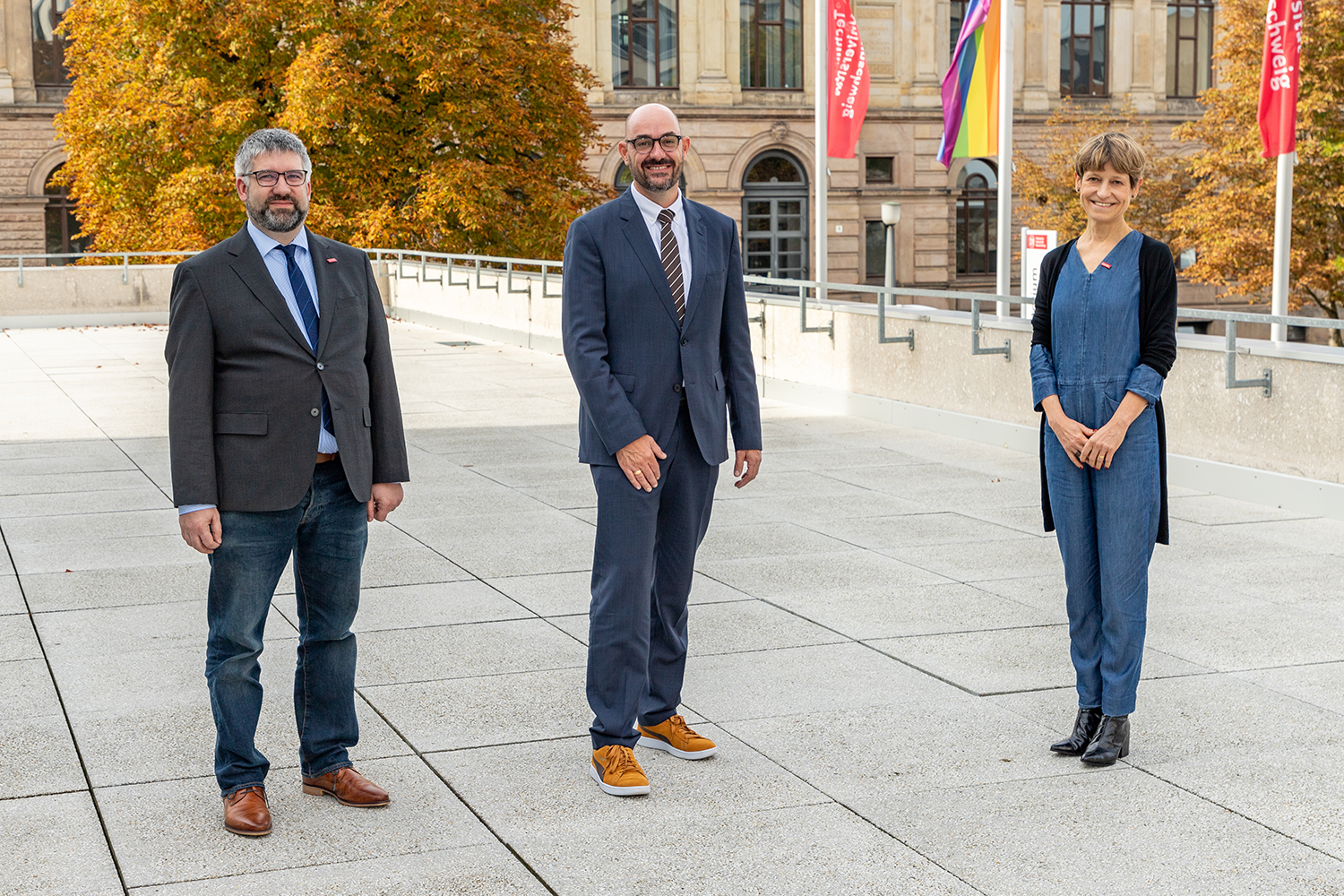Safety-critical systems: Better understanding the interaction between humans and technology Questions to Professor Lars Gerhold, Chair of Psychology of Sociotechnical Systems
Lars Gerhold started at TU Braunschweig in October 2022. Here he is establishing the new chair “Psychology of Sociotechnical Systems”. This chair is unique in Germany because the connection between human beings and (digital) technology – such as the acceptance of warning systems – is studied here. Professor Gerhold is particularly interested in the perception and actions of people as well as the influence of technologies. We asked him what excites him about this field of research and as a policy advisor.
Professor Gerhold, have you arrived well at TU Braunschweig?
Yes, very good. My colleagues, the staff in the departments and the secretariats have given me a great welcome and have supported me in the first few weeks with all questions about setting up the new chair. The proximity to the beautiful campus and the lectures in the newly renovated Main Lecture Hall are also a real pleasure. Slowly, the first routines are setting in, and you can tell that you’ve arrived.
Why did you choose TU Braunschweig?
The reason for my decision was, on the one hand, the newly created chair “Psychology of Sociotechnical Systems” and, on the other hand, the open nature of the university management and the institute, who were very open to me and my ideas. This chair is highly innovative and so far unique in Germany. TU Braunschweig is taking on a pioneering role and I like the idea of being able to shape things here. The dynamics of digitalisation affect us all in many areas of life and the content of the chair is therefore future-oriented.
How would you explain your work to a person not familiar with the subject?

Prof. Lars Gerhold. Photo credit: Tanja Vonseelen/Das Kontor
My field of research is “safety-critical socio-technical systems”. These are systems whose functioning is highly relevant for society and the individual, possibly even vital for survival. Think of warning apps, for example: these offer innovative ways to warn people of dangers such as extreme weather events like flooding. But if these fail, are not used or the warnings are ignored, people’s lives are at risk. Investigating and understanding the interaction between humans and technology in this field is a significant part of my research work. To do this, we rely on innovative technologies and want to use VR and AR technologies in the future to simulate damage events in a safety test laboratory in order to better understand the perception and actions of people on the one hand and the influence of technologies on these processes on the other hand.
What made you decide to do research in this area?
That was the risk research I encountered during my studies and my first job as a research associate. Understanding why people are afraid of something and what drives them to act or not fascinated me. Why are people afraid of flying, but at the same time speed along the motorway in their own cars? How do drastic events like a terrorist attack or a flood like the one in Germany last year change people’s perception and awareness of dangers?
What was your best experience as a scientist?
As part of my work as scientific director of the Public Security Research Forum, I am allowed to regularly exchange views with members of the German Bundestag on public security issues. In one case – it was about the care of the population in the event of a disaster – a decision in the Bundesrat to amend the law was postponed because they wanted to wait for the results of our research work first. I was impressed to see that in an open dialogue with politicians, scientific results can contribute to putting political decisions on a sounder footing.

TU President Prof. Angela Ittel with Prof. Lars Gerhold (m.) and Prof. Christoph Jacob, Dean of the Faculty of Life Sciences. Photo credit: Stephan Nachtigall/TU Braunschweig
What constitutes good teaching for you?
I see myself as a learning guide. My teaching should be an invitation to the students to get involved in a topic. Through my didactics and the alternation of different methods, I try to make learning fun and encourage students to work through topics independently. The joy of learning and the experience of autonomy have a positive effect on learning success.
What would you like to give students to take with them?
Studying is more than learning and reproducing content. Enjoy the time and the opportunity to work intensively on topics that interest you. Exchange ideas with others and learn from each other. Develop values that are worth standing up for.
